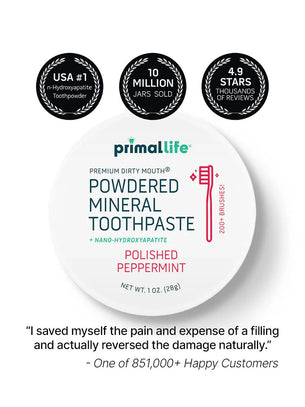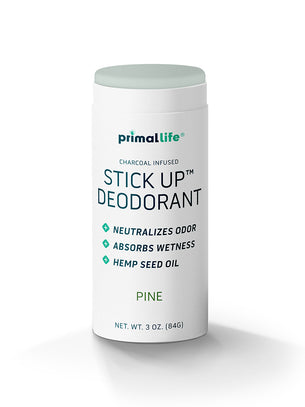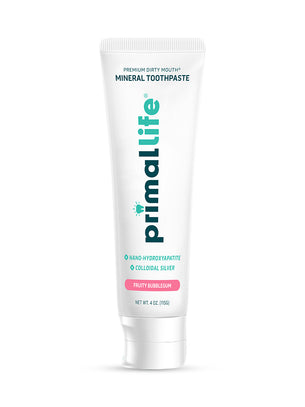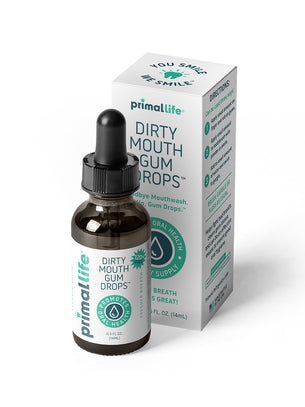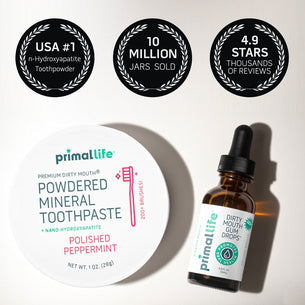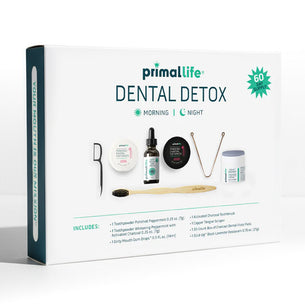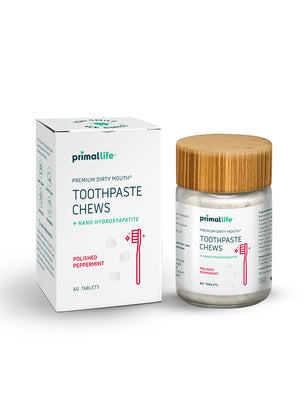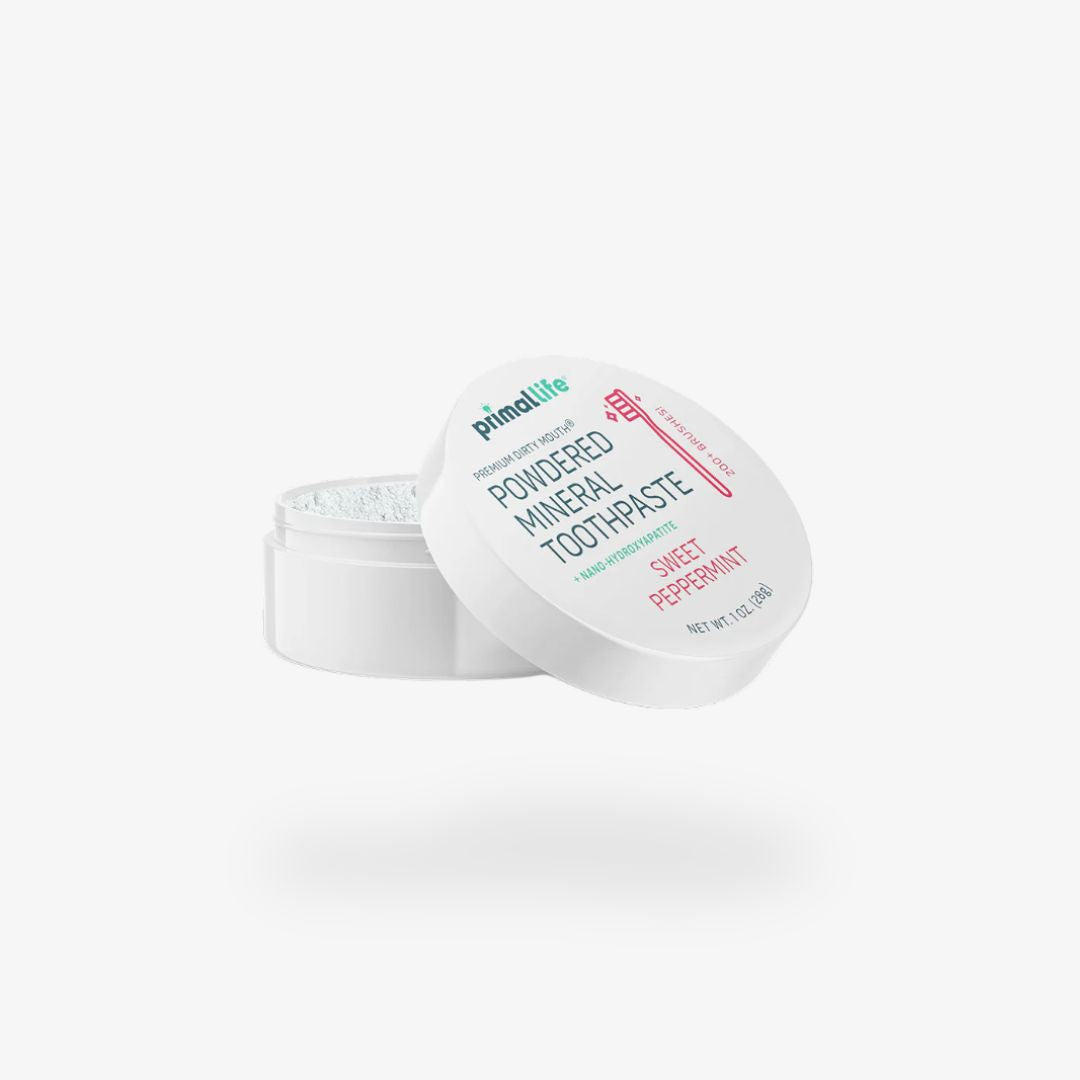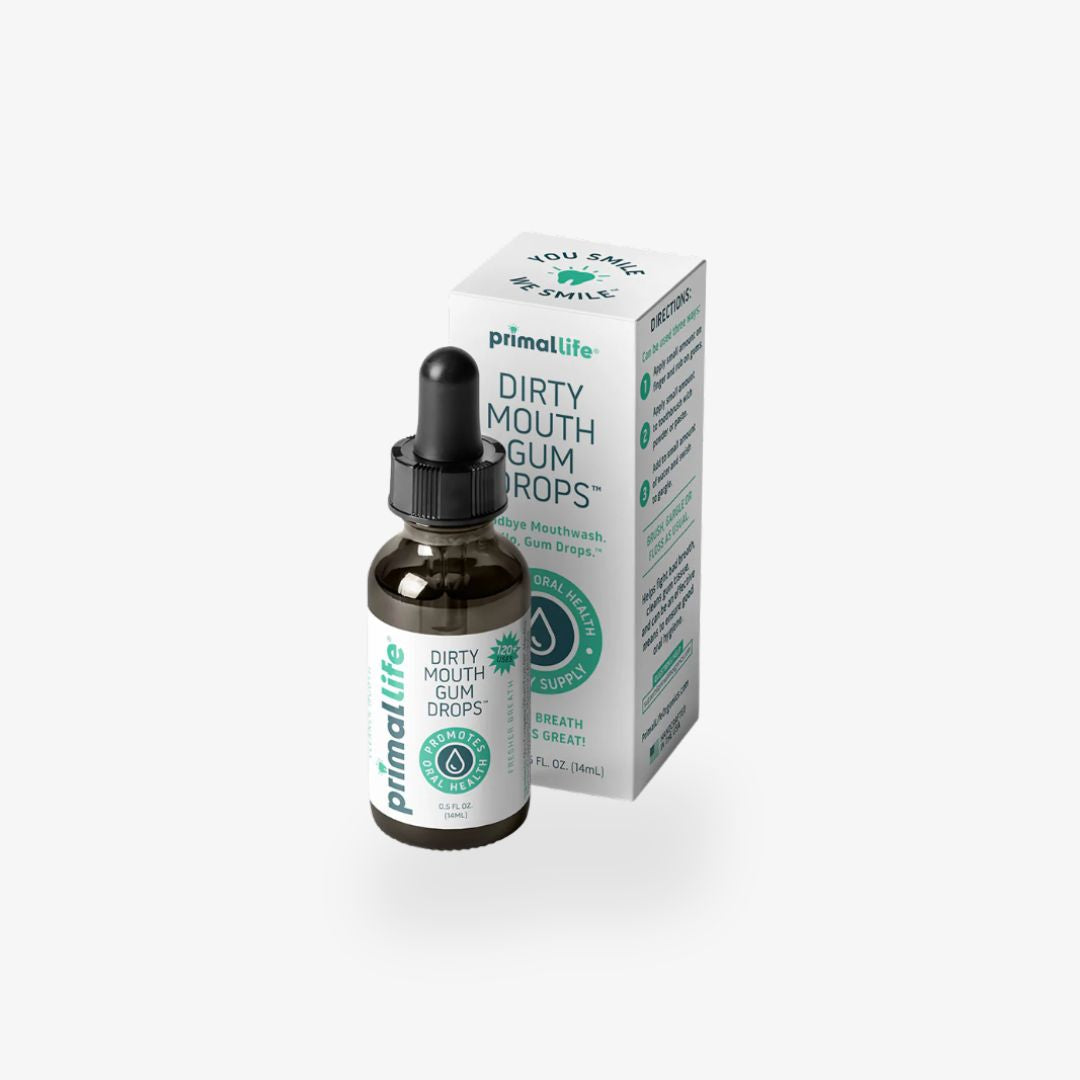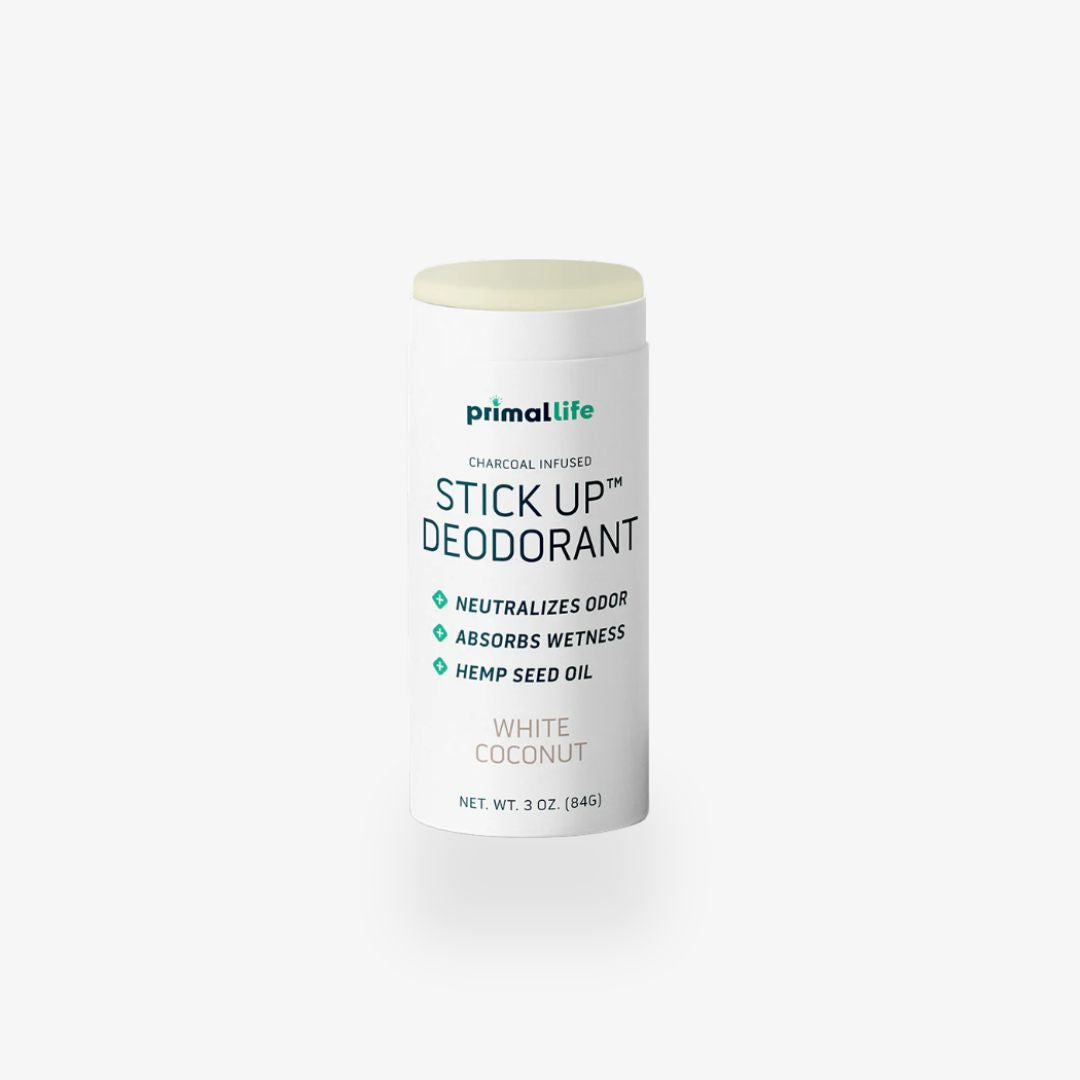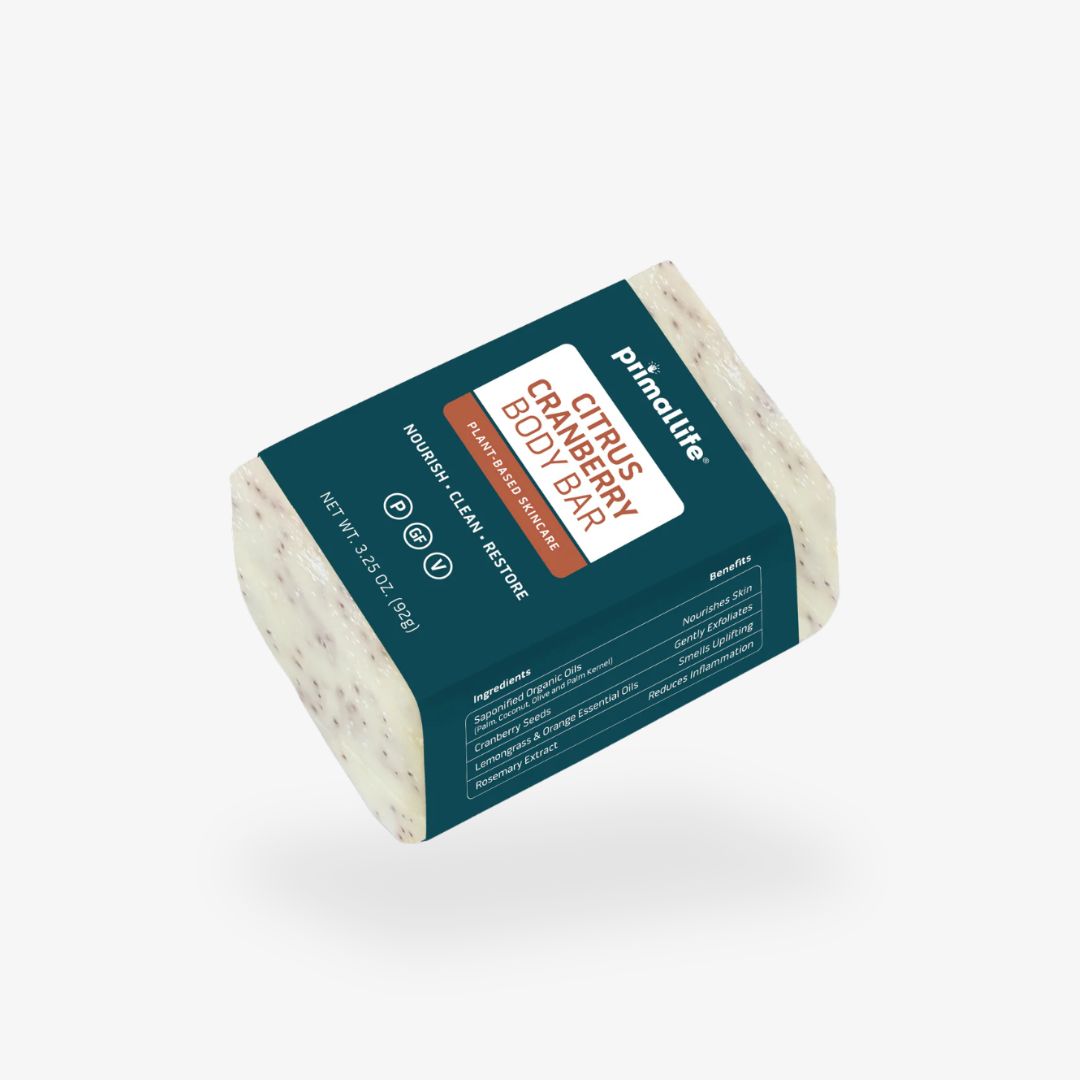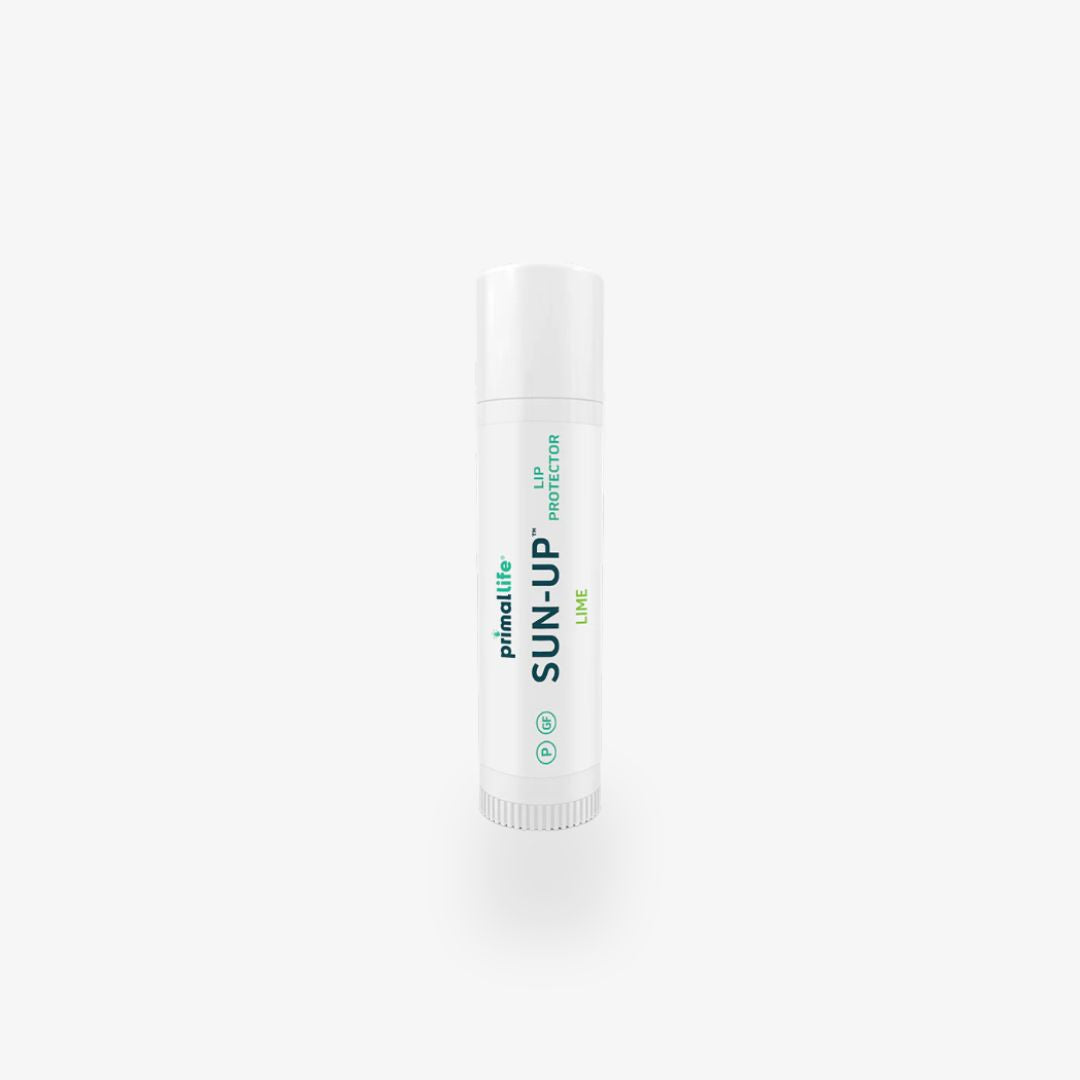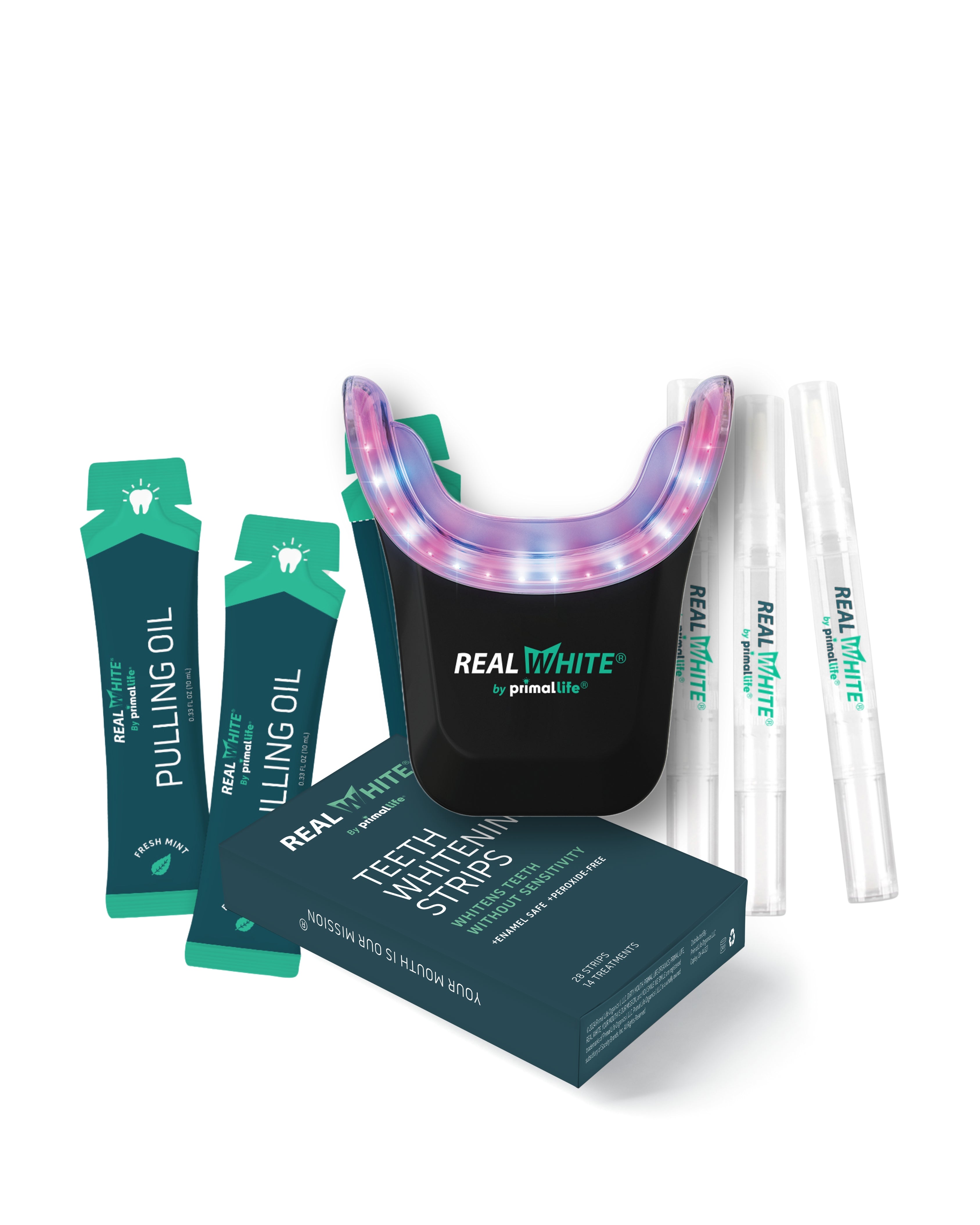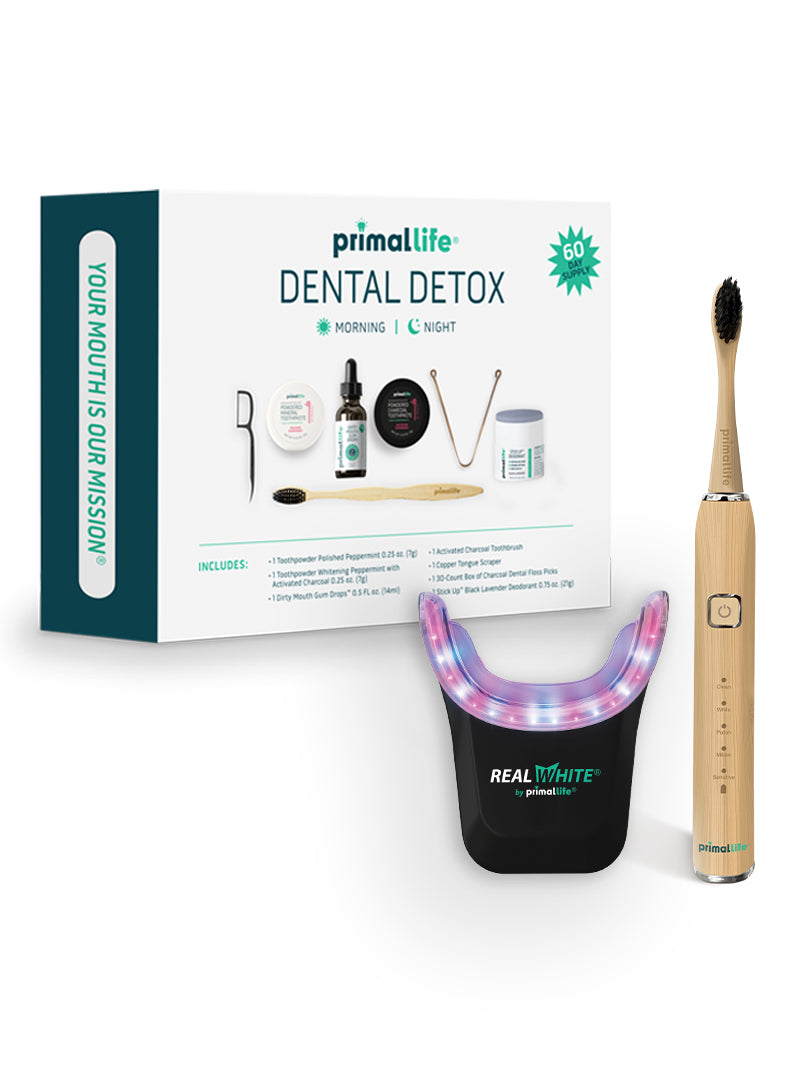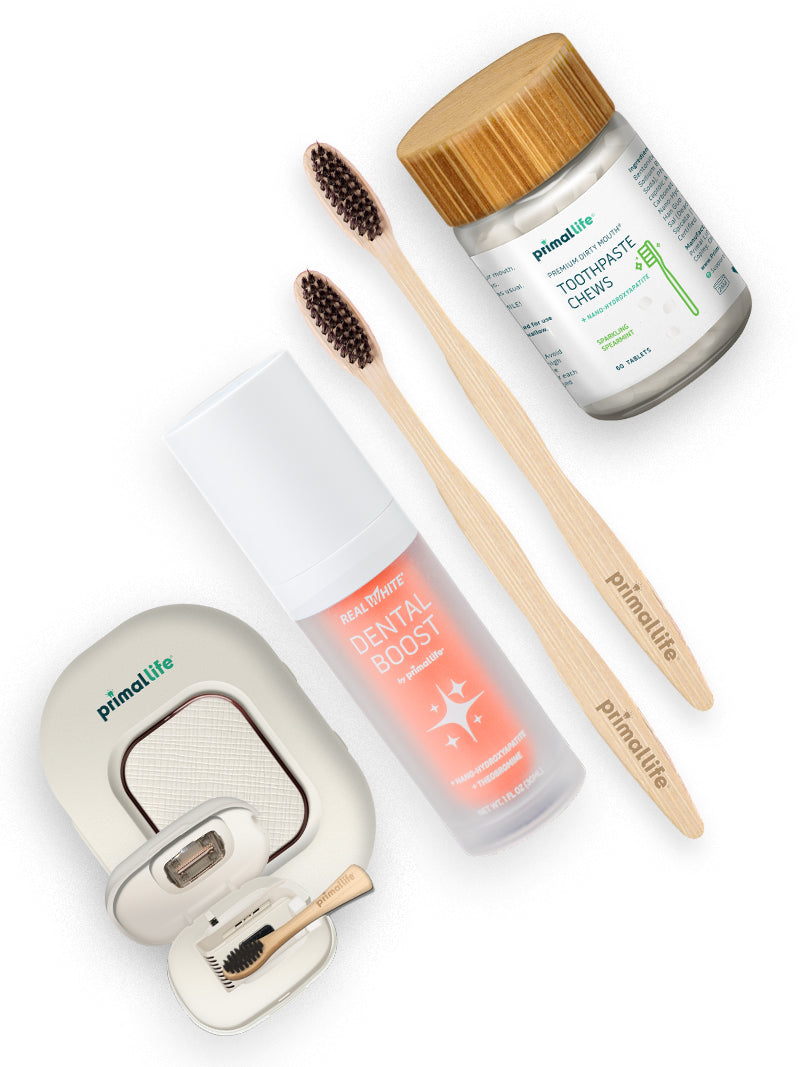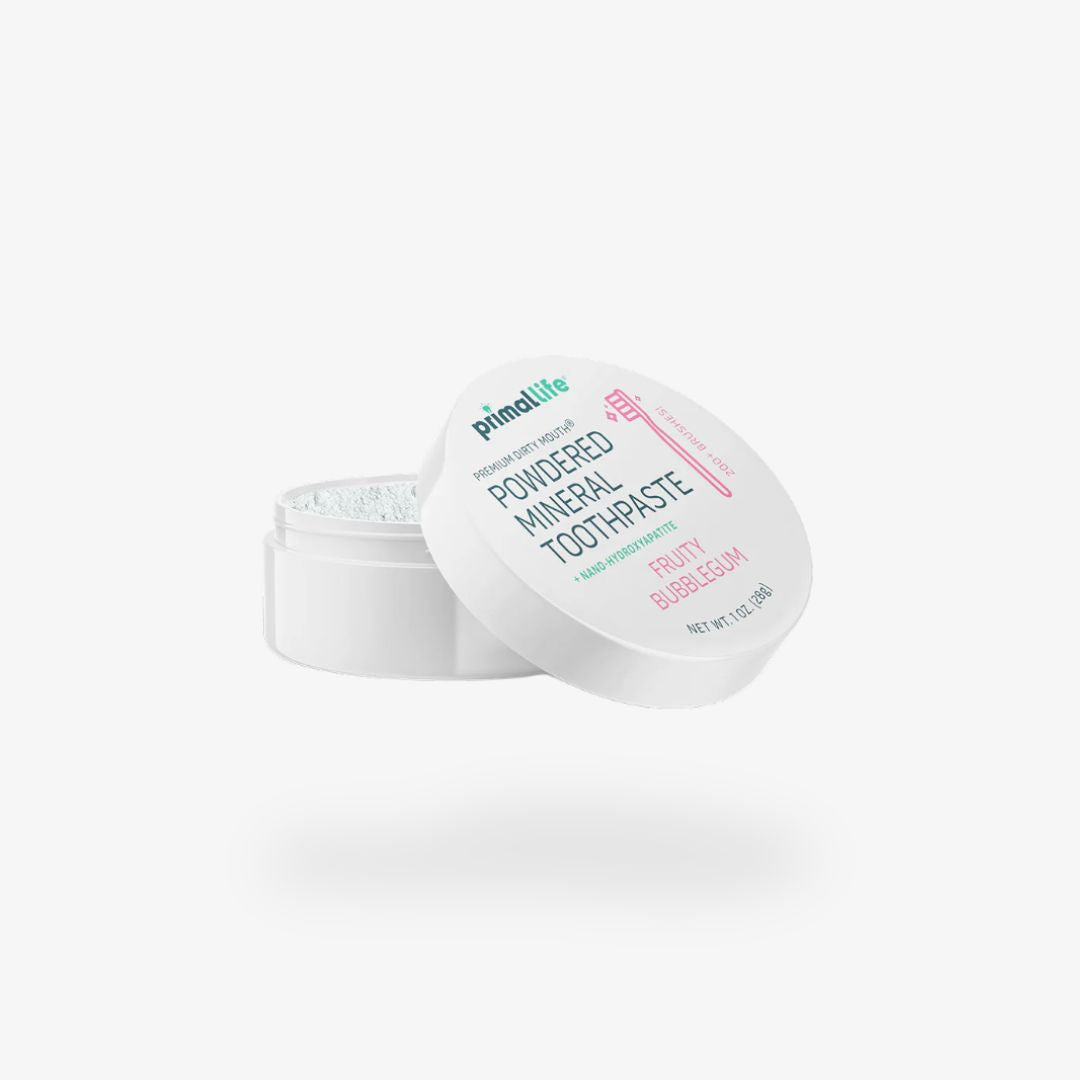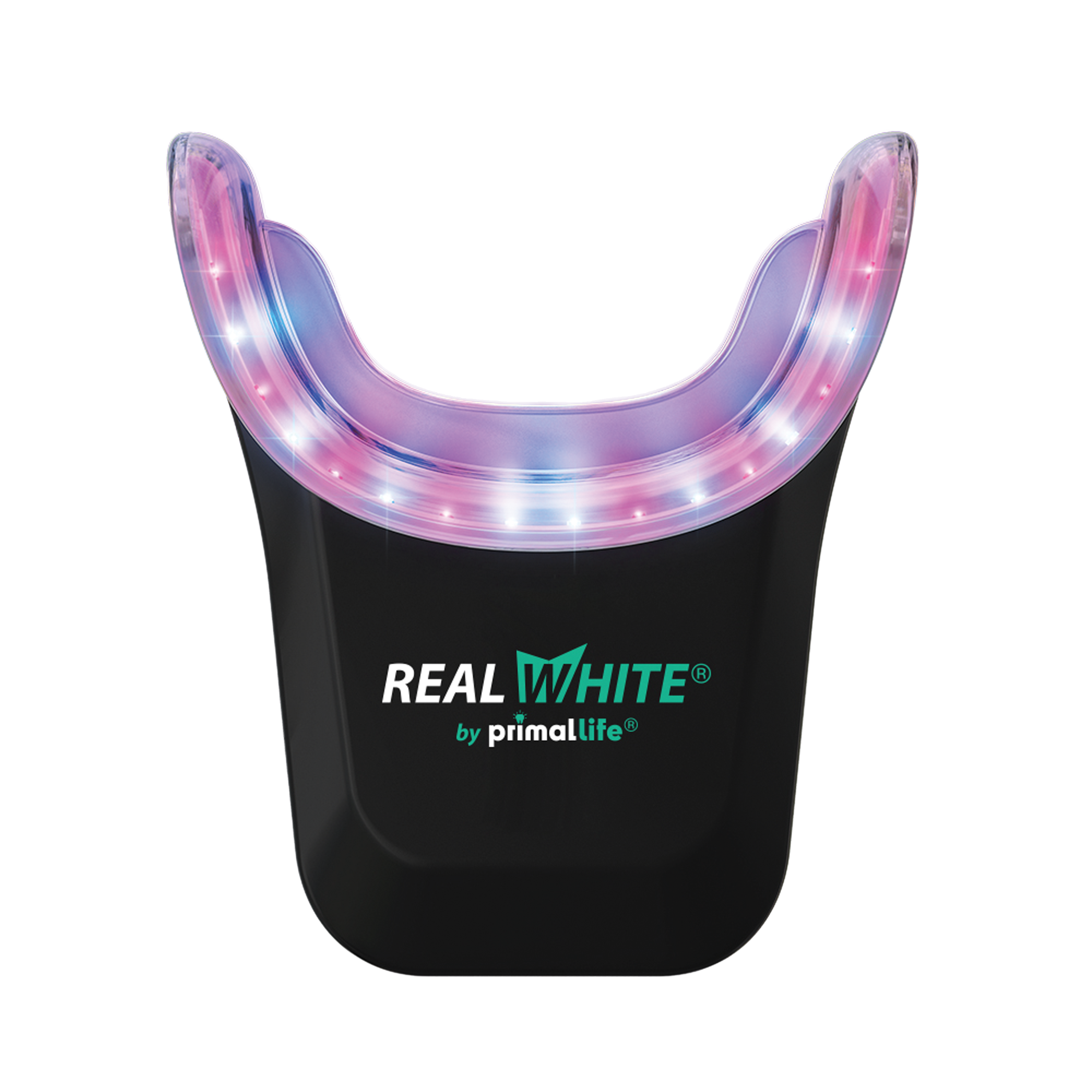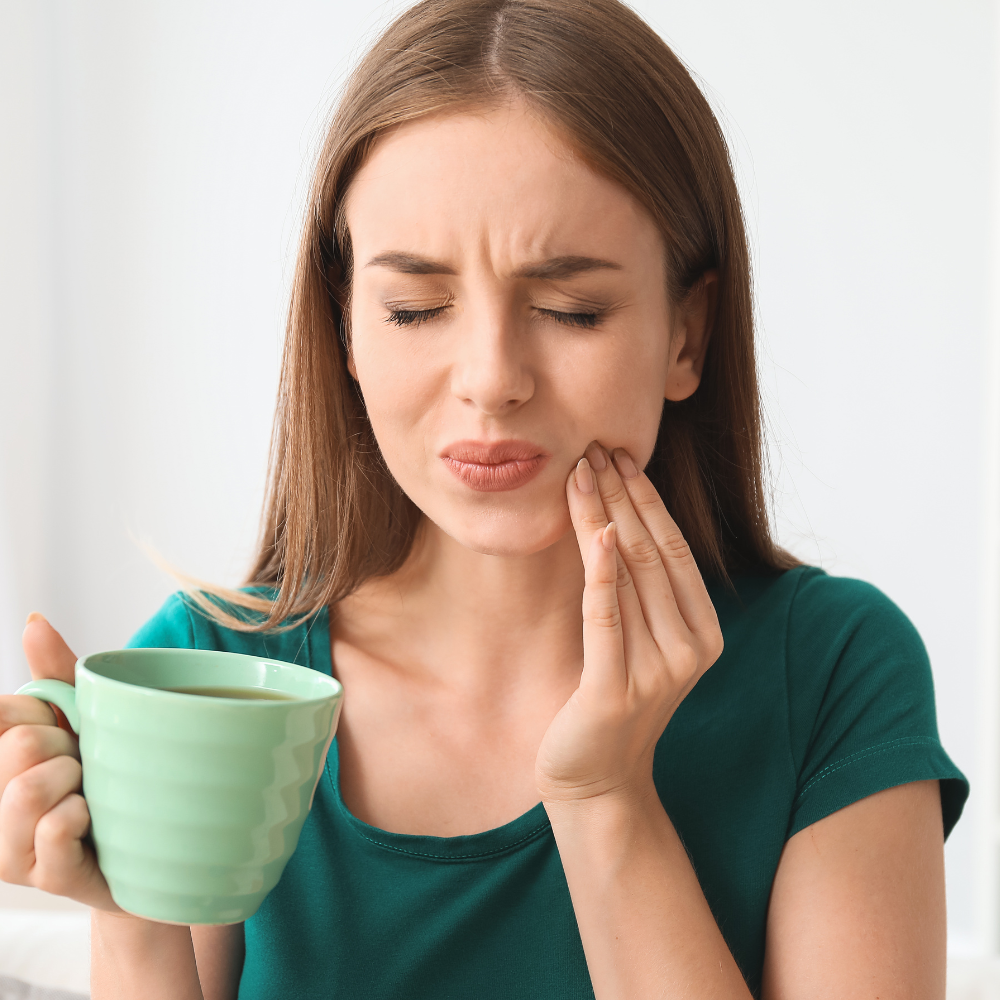
Strawberry ice cream on a hot summer day sounds refreshing and delicious…unless you are one of the 45 million Americans who have sensitive teeth.
If that’s you, you’re probably all too familiar with the searing pain shooting through your teeth like a lightning bolt, every time you take a sip of something cold or hot.
Dealing with sensitive teeth can turn the simple joys of eating and drinking into a painful ordeal. But there is hope! You can heal your sensitive teeth - at home and without a dentist.
So, grab your favorite drink (not too hot or cold, though!), and let's dive into the world of tooth sensitivity and how you can fix it for good.
What Is Tooth Sensitivity?
Tooth sensitivity occurs when the inner layer of your teeth, known as dentin, becomes uncovered. Often, this process is associated with demineralization, where essential minerals are gradually stripped away, leaving the teeth vulnerable. This exposure can also be due to erosion, from aggressive tooth brushing or wear and tear, or gum recession, where your gum tissue pulls away from your teeth, revealing the roots.
Unlike the hard enamel covering the rest of the tooth, the roots house thousands of tiny tubules leading to the tooth's center, known as the pulp. These dentinal tubules act as channels, allowing stimuli—such as hot, cold, or sweet foods—to reach the nerve within your tooth, causing the pain you experience.
Additionally, dental sensitivity may indicate other issues like cavities, gum disease, or a cracked tooth.
What Causes Tooth Sensitivity?
Tooth sensitivity can stem from a variety of factors. Some causes include:
- Wearing down tooth enamel through vigorous brushing with a hard toothbrush.
- Erosion of teeth due to the consumption of highly acidic foods and drinks.
- Tooth decay, worn-out or damaged fillings, and fractured teeth that unveil the dentin.
- Exposed root surface due to gum recession.
- Teeth grinding during the night.
- Temporary post-dental treatment sensitivity, particularly with procedures like crowns, fillings, and tooth bleaching.
Age And Sensitive Teeth
Sensitive teeth can happen at any stage of life. Research in the Journal of Conservative Dentistry indicates that adults between the ages of 20 and 50 are more likely to report sensitive teeth.
Peak incidence of dentin hypersensitivity occurred primarily in those 30 to 40 years old. It was noted that older adults are more susceptible to receding gums, which is a contributing factor to tooth sensitivity. Additionally, wear and tear on tooth enamel over time may be a significant factor.
Commercial Toothpaste And Sensitive Teeth
We've all been there, standing in the toothpaste aisle, overwhelmed by the myriad of options promising dazzling smiles. Unfortunately, those very same toothpastes are often the cause of our sensitivity issues!
Sensitive teeth stem from demineralization, a process where essential minerals like calcium and phosphate are stripped away, leaving teeth vulnerable. Commercial toothpaste, touted for its cavity-fighting prowess, instead of remineralizing teeth, creates an acidic environment inside our mouths that leaves our mouths defenseless, unable to remineralize our teeth.
Enter toxic fluoride – a proven neurotoxin - that has been shown to prevent a mere 33% of cavities. This is alarming, considering the World Health Organization (WHO) states that cavities are 100% preventable!
Unfortunately, due to the significant dollars invested in marketing and the persistent reliance on outdated dental paradigms, more than 90% of people still find themselves dealing with cavities.
And if that isn’t enough, the acidic aftermath of brushing with toxic commercial toothpaste adds insult to injury. Acidic environments are a breeding ground for cavities, gum disease, and sensitive teeth. So, the very product marketed to enhance dental health actually destroys it in the process.
Peroxide And Sensitive Teeth
Teeth whitening is another cause of sensitive teeth. Many whitening products use peroxide-based agents, and while they might enhance your pearly whites temporarily, they can wreak havoc on enamel and gums.
Research shows that peroxide whitening products, especially those containing between 30 and 35 percent of peroxide, can burn the soft tissue of the gums and create painful irritation.
Worse yet, the whitening products we’ve been told to use and trust are known to weaken the enamel and dentin responsible for making our teeth strong and white. A growing body of research proves the dangers of peroxide whitening products:
- Bleaching agents increase porosity of surface enamel
- Bleaching agents steal minerals from teeth and reduce protein concentration
- Bleaching agents disrupt natural calcium-to-phosphate ratio
- Bleaching agents leach calcium from teeth
All of this means that repeated use of commercial whitening products puts your teeth at risk of becoming weak, brittle, sensitive, and at greater risk of cavities.
How To Heal Sensitive Teeth
Sensitive teeth require a comprehensive approach that includes choosing the right products and techniques. Follow these steps to banish sensitivity and maintain robust oral health:
1. Choose The Right Toothpaste
The first step is to stop using the products that caused it in the first place. Ditch the toxic commercial toothpaste and mouthwash that cause an acidic mouth environment and prevent remineralization.
The next step is embracing the three essentials of good oral health: alkalinity, minerals, and detoxification.
Alkalinity - The Neutralizer
An alkaline environment is your mouth's best friend. It neutralizes acids that contribute to cavities, gum disease and sensitive teeth. In order for remineralization to occur, your mouth must be alkaline.
The hero here is baking soda – the go-to ingredient for maintaining a balanced pH in your mouth.
Minerals - The Remineralizers
Our teeth need minerals for remineralization – a process crucial for preventing and healing cavities and sensitive teeth.
Calcium, phosphate, and nano-hydroxyapatite, a form of calcium phosphate that make up 97% of your enamel, are the building blocks. But here's the kicker – the minerals must be in the right size and form.
This is why at Primal Life, we use nano-hydroxyapatite. Size matters when it comes to remineralizing your teeth effectively. Unlike some other natural toothpaste rands that use hydroxyapatite, we specifically chose the nano-sized variant.
Why does this matter? Because nano-hydroxyapatite operates at a molecular level, mirroring the tiny crystallites that compose your tooth's enamel. This precise mimicry ensures optimal absorption, reaching where it matters most.
We then use natural clays like Bentonite, White, and French Green Clays, which provide the perfect blend, ensuring your teeth get the full spectrum of nutrients.
Detoxification - The Cleanser
Our mouths face a daily onslaught of toxins from various sources. These toxins seep into our gum tissues and enamel, potentially causing harm to our overall health. This is where the power of clay-based toothpowders or toothpaste comes in. Clay binds to these toxins, cleansing your oral tissues and reducing the toxic load on your body.
Choosing an Effective Natural Toothpaste
Armed with this knowledge, choosing the right toothpaste becomes a critical decision. Look for products that encompass all three essentials – alkalinity, minerals, and detoxification.
At Primal Life Organics, our Dirty Mouth Toothpowder, Toothpaste, and Toothpaste Chews are formulated with cleansing, mineral-rich bentonite, kaolin, french green clays, and nano-hydroxyapatite to clean, whiten, and remineralize your teeth, so they are stronger, leaving you with an alkaline mouth that is resistant to cavities and sensitivity.
For sensitive teeth, we recommend you brush 3x a day, and in between brushings, you can apply our Dirty Mouth Toothpowder or Dental Boost (also made with nano-hydroxyapatite) to strengthen your teeth throughout the day. This will help build back your enamel and decrease sensitivity faster.
2. Brush With A Soft Bristled Toothbrush
Using the right toothbrush is just as important as choosing the right toothpaste. Hard-bristled toothbrushes and aggressive brushing can wear down enamel, exacerbate sensitivity, and lead to gum recession.
Instead, opt for a soft-bristled toothbrush that cleans effectively without damaging your teeth and gums.
Our Sonic Toothbrush is designed specifically for sensitive teeth and gums. It combines powerful sonic vibrations with soft, tapered bristles that gently clean deep between teeth and along the gum line. This helps remove plaque and bacteria while preserving enamel and supporting gum health.
With multiple brushing modes, including a sensitive mode, you can customize your brushing experience for optimal care.
3. Pair LED Light With A Remineralizing Gel
To accelerate the healing process for sensitive teeth, consider pairing LED light therapy with a remineralizing gel.
Our LED Teeth Whitening System offers dual benefits:
- Blue LED Light helps whiten teeth by targeting stains but also enhances the effectiveness of our remineralizing gel made with nano-hydroxyapatite, to aid in enamel repair.
- Red LED Light promotes gum health by reducing inflammation and stimulating circulation, creating the ideal environment for enamel to rebuild and strengthen.
By combining LED light therapy with our remineralizing gel, you can enhance enamel repair and promote overall oral health more effectively.
Saying Goodbye To Sensitive Teeth For Good
Reclaiming the joy of carefree eating and drinking begins with a simple yet powerful step – reevaluating your dental care routine.
Say goodbye to sensitivity by choosing a toothpaste that prioritizes alkalinity, minerals, and detoxification, like our Dirty Mouth Toothpowder, Toothpaste, and Toothpaste Chews. Use the right tools, like a soft-bristled Sonic Toothbrush and our LED Teeth Whitening System, to support your journey to stronger, healthier teeth
Once you start using the right dental products, you’ll notice reduced sensitivity and feel an empowerment over your dental health.
REFERENCES
https://my.clevelandclinic.org/health/symptoms/10954-teeth-sensitivity
https://pubmed.ncbi.nlm.nih.gov/31940633/
https://www.mayoclinic.org/diseases-conditions/cavities/symptoms-causes/syc-20352892
https://www.ncbi.nlm.nih.gov/pmc/articles/PMC3010026/
https://www.ncbi.nlm.nih.gov/pmc/articles/PMC5034904/
https://www.who.int/news-room/fact-sheets/detail/oral-health
https://www.cdc.gov/healthyschools/bam/child-development/child-oral-health.htm#
https://www.ncbi.nlm.nih.gov/pmc/articles/PMC8432723/
https://www.ncbi.nlm.nih.gov/pmc/articles/PMC4393665/
Read more

Dentists have been stuck in an outdated paradigm for decades, telling us cavities can’t be healed without a filling, and gum recession can’t be fixed without surgery. But the truth is, conventiona...

A clean, confident smile starts with what’s happening below the surface. We all want a whiter smile. It’s one of the first things people notice, and something that makes us feel more confident, mor...
